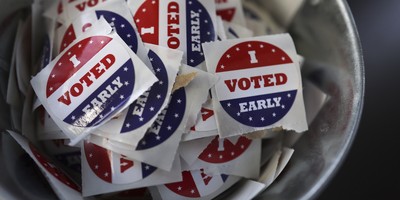For more than thirty years, the 340B program has been helping Americans access medications they might otherwise be unable to afford. The program was a bipartisan effort that granted pharmaceutical companies access to Medicare Part B and Medicaid markets in exchange for providing drugs to 340B hospitals, health centers, and clinics. That gave those companies access to approximately half of the U.S. population, and gave those hospitals–that serve predominantly rural and low-income patients–affordable medication for their patients.
The data makes it clear that those relying on 340B hospitals, especially elderly patients, need this assistance. Older adults in rural areas are more likely to experience falls, and those falls are more likely to be fatal when they occur. Testing and treatment are lacking in Alzheimer's and there are higher incidences of cancer, with lower survival rates as well than there are for their urban counterparts.
The hospitals in these areas rely on 340B savings to “stretch scarce federal resources as far as possible, reaching more eligible patients and providing more comprehensive services.” This program is unique because it does this without burdening taxpayers. The funds that support these low-cost medications come from the profits of the pharmaceutical companies. So, it costs the government–and taxpayer–nothing while providing incredible value to patients dependent on a healthcare safety net. While it does have a cost to the pharmaceutical companies, they get to participate in the incredibly lucrative Medicare Part B and Medicaid in exchange.
They still come out ahead.
But pharmaceutical companies don’t want to pay, so they are pushing misinformation. They want average Americans to think 340B benefits those who have entered the U.S. illegally and are using our healthcare system. However, that’s not the case. They are getting healthcare without insurance, without going through any proper channels, and are not using any official programs for medical care. 340B is not what’s helping them get care. Instead, 340B is helping rural Americans–particularly the elderly.
Recommended
Research has also shown that the elderly in rural areas have significantly lower incomes than those in urban areas, so patients in rural hospitals are typically uninsured or relying on Medicaid. The hospitals that serve them are struggling to stay open as the younger population leaves the area to find work, and 81 percent of rural counties have more deaths than births. Now, the opioid epidemic has increased the burden on many elderly households, especially in rural areas where grandparent-led households are most common.
Addiction has left children to be raised by their grandparents–many of whom were already struggling to afford their own healthcare. More than 58,000 grandparents are responsible for grandchildren in Kentucky, the state with one of the highest rates of children being raised by non-parents in the U.S. Of those households, nearly a third do not have either parent present. In the Appalachian areas of the state, grandparents as head of the household are even more common, as is a lack of parental presence. These are the households that are helped by 340B, along with those who are left behind when younger generations move to urban areas in search of more lucrative futures.
In Michigan, twice as many grandparents are raising or helping to raise grandchildren than a generation ago. They meet up for intergenerational picnics to support each other, but some even require help to get to the picnics. They lack transportation or gas money to attend, which is no surprise because nearly 20 percent of “grandfamilies” have incomes below the poverty line. In many cases, children being raised by grandparents did not get proper prenatal care and were exposed to drugs in utero. That adds up to higher medical bills than healthy children. “Pensions and Social Security are supposed to be for these older adults to take care of themselves,” Lisa Grodsky, who runs the group Grandparents Raising Grandkids told the Detroit Free Press, “They’re taking their fixed incomes and spending it on kids and it’s sending them into poverty.”
Because many grandparents step in for their grandchildren before the state gets involved, the exact number of grandparents raising their grandchildren in Michigan isn’t known. However, around 54,000 of Michigan’s children are being raised by a relative. It’s saving the state billions by keeping these children out of foster care, and it’s saving the children the trauma of being in the system. But it’s difficult for the grandparents, whose numbers continue to grow. “This population seems to have been expanding to almost epidemic proportions,” Grodsky told the Detroit News.
It’s an epidemic that is driving elderly Michiganders to poverty, and it comes from an act of love. These are grandparents who simply want to care for their grandchildren. The 2018 Supporting Grandparents Raising Grandchildren Act reported to Congress in 2021 families “struggle to house, feed and clothe themselves and the children in their care.” 340B is one of the few things that helps and misinformation is threatening that.
Nearly 95 percent of Michigan’s land area is considered rural, and 20 percent of its population lives in rural areas. And 87 hospitals [1] in the state take part in the 340B program to help low-income families pay for the cost of healthcare, including prescriptions, pharmacy consultations, home infusion services, and mental health services. These things would, quite simply, be out of reach for too many Michiganders without this program. It’s incredible that it comes at no cost to taxpayers.
There is no perfect healthcare program, but 340B does a great job of supporting patients who need assistance without passing costs on to taxpayers. Pharmaceutical companies, taxpayers, and rural healthcare providers all come out ahead with this program. Now, pharmaceutical companies don’t want to hold up their end of the bargain. Don’t listen to their misinformation. We need to support rural healthcare and demand they keep putting some of their robust profits back into our communities.

























Join the conversation as a VIP Member